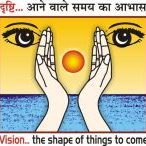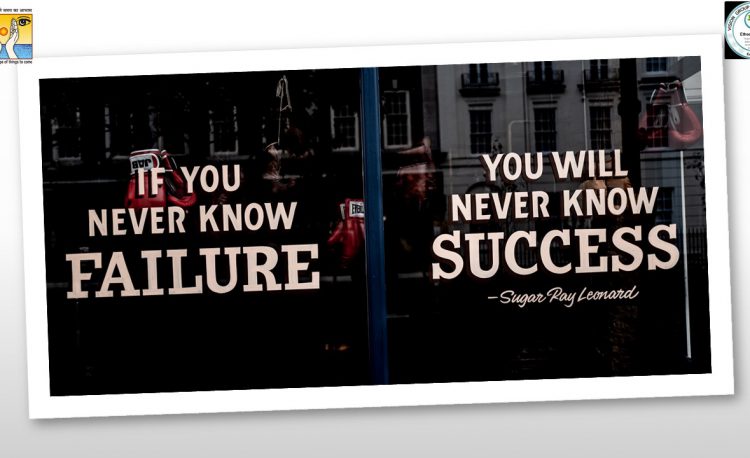Many students shy away from challenging assignments/projects and get discouraged quickly when they make mistakes. These students are at a significant disadvantage in college—and in life more generally—because they end up avoiding the most difficult work. Successful entrepreneurs make more mistakes and learn from their mistakes.
Making mistakes is one of the most useful ways to learn in science. Our brains develop when we make a mistake and think about the mistake. This brain activity doesn’t happen when people get work correct, or when they stop trying.
CENTER FOR CHARACTER & LEADERSHIP DEVELOPMENT (CCLD) & Entrepreneurship & Start-up Cell (E-Cell) of Vision Group of Institutions jointly conducted a session Celebrate your Mistake for all students. This sessions aimed to promote a culture of accepting and learning from our mistakes, an attitude of not falling into the trap of avoiding an experiment for the fear of failure. We need to show to students that all of great men made mistake and perhaps the only difference was that they did not try to cover up their mistakes.
Let us get together and promote a culture where we ‘Celebrate our Mistakes, learn from them, and progress in life!’.
CCLD, Vision Group of Institutions
All of the students attended the session. We began with discussion on growth mindset, and need for an optimistic outlook. Number of games and activities were organized. It was really encouraging to see students coming forward with their own experiences and life stories.
Activity: Games
- A Student is blindfolded. Stand a some distance from a bucket. Have to throw fixed number of balls in the bucket. Get feedback from spectators/ chosen friends (group of 2 or 3)
- A Student is blindfolded. Is asked to draw on the board with a marker/chalk. Can take feedback from the students.
Activity: Classroom Discussion
Sometimes it’s important to simply tell students that you love mistakes because
that’s how students learn. Start the class with a lesson on why you like mistakes
and what students can learn from them. Lead a discussion on how students feel
about making a mistake and why.
Here are a few discussion points to get you started:
• How do you feel when you make a mistake? Why?
• How do you think other people see you when you make a mistake?
• Have you ever discovered something new from making a mistake?
• Have you ever felt proud of making a mistake?
• Has a mistake ever made you think more deeply about a problem? (You can
start by talking about a non-academic setting, and then talk about how the
lessons apply to academics.)

